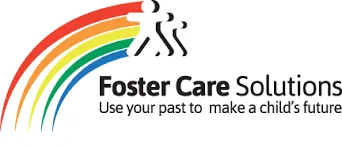

10 Fostering
Misconceptions
Are fostering myths holding you back from becoming a foster carer?
There are many misconceptions floating around that unfortunately stop people from enquiring to become a foster carer. With that in mind, we wanted to share the most common misconceptions we've heard of so you can find out the truth about fostering!
What is important for us is that you have the availability to care for children so we will explore with you how you would balance work alongside fostering.
Children coming into foster care need consistent caregivers and so we would not encourage foster carers to use alternative daycare providers whilst they work. There are times when it is possible to work part-time particularly if caring for school-age children and depending on the needs and age of children it may be possible to work full-time (for example with older teenage children who have a degree of independence).
You can be in rented accommodation and foster, however, you must seek permission from your landlord before applying to foster to ensure they are happy for you to have foster children and young people in their property.
Having pets does not prevent you from fostering, in fact, they can be an asset to a foster family. However, every animal is different and your pets will be assessed as part of the process of becoming a foster carer, taking into account factors such as their temperament and behaviour. As a pet owner, you also need to think about how you would feel and react if a child injures one of your pets.
Having a police record will not necessarily stop you from fostering. The law states that the only criminal convictions that prevent people from fostering are those that relate to an offence against children or a sexual offence.
Minor offences should not count against you in your application to foster. All criminal convictions will need to be disclosed when you first apply to foster as the application process to become a foster carer includes an enhanced criminal record check.
Your health will be considered when applying to foster and any long-term conditions are taken into account. The most important factor is whether you are physically and psychologically fit enough to cope with the demands of caring for a child – this may vary depending on the age of the children that you are approved for. A full medical is one of the assessment checks we complete and this is renewed regularly when fostering to ensure you remain fit to complete the fostering role.
Previous financial problems should not prevent you from fostering, however, you will need to demonstrate that you are now financially secure enough to provide a stable home for any children who are placed with you. A financial check is completed during the fostering assessment which will evidence that you are able to manage the fostering allowances paid to you. Because fostering allowances are only paid when a child is living with you there can be gaps when you are not receiving an income so its important that foster carers are not reliant upon the fostering income.
Being LGBTQ+ does not prevent you from becoming a foster carer.
Our foster carers are all different and no matter what those differences are, we celebrate them, because this is what makes them who they are; ordinary people doing extraordinary things.
You do not need to be married to foster. Some of our foster carers are married, some are single and others are in long term partnerships.
Myth 9. I must have had my own children before fostering a child
You do not need to have had your own children, but experience of looking after or working with children and young people will give you an invaluable foundation on which to build your fostering skills.
There is no upper age limit to foster (although you do need to be over the age of 21).
What matters is that you're still able to fulfil the active side of fostering a child or young person, for example completing the school run and helping with outdoor activities.
We Are Here To Guide You
Become a Foster Carer Today
01914 250 095
Ready to change a young person's life?

* All our carers are paid above the
Fostering Network Payment Guidelines.
(Made to each fostering household with
a child or young person in their care).
Enquire now!